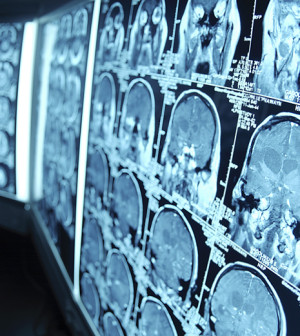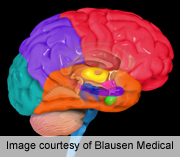- 8 Ways to Increase Dopamine Naturally
- 7 Best Breads for Maintaining Stable Blood Sugar
- Gelatin vs. Collagen: Which is Best for Skin, Nails, and Joints?
- The Long-Term Effects of Daily Turmeric Supplements on Liver Health
- Could Your Grocery Store Meat Be Causing Recurring UTIs?
- Are You Making This Expensive Thermostat Error This Winter?
- Recognizing the Signs of Hypothyroidism
- 10 Strategies to Overcome Insomnia
- Could Artificial Sweeteners Be Aging the Brain Faster?
- Techniques for Soothing Your Nervous System
Baboons Shed Light on Human Brain Evolution


MONDAY, Nov. 11Research with baboon brains has provided new insight into the evolution of the human brain, a new study contends.
The genetics behind the development of folds in the human brain have been a mystery, but there are new clues in a study scheduled for presentation Sunday at the annual meeting of the Society for Neuroscience, in San Diego.
As the human brain evolved, there was a dramatic increase in the number of brain cells and connections, the researchers said. But this growth was restricted by the size of the skull in relation to the birth canal, leading the brain to fold into ridges and valleys.
“The evolution of the human brain over time is a very complex process,” Elizabeth Atkinson, of Washington University in St. Louis, said in a Society for Neuroscience news release. “Our study connects the folding of the brain with the underlying genetics, and provides unique insight into how the evolution of our genes has driven the shape, and ultimately the function, of our brains.”
The researchers analyzed nearly 1,000 baboon brain scans and pinpointed a handful of chromosome segments and genes that affect the way the brain is folded.
It’s thought that thinking capacity is determined by the growth these folds can accommodate.
Human brains have 30 percent more folds than chimpanzee brains, our closest evolutionary relative, according to the news release.
Research presented at meetings typically are considered preliminary until published in a peer-reviewed medical journal.
More information
The U.S. National Institute of Neurological Disorders and Stroke has more about the human brain.
Source: HealthDay
Copyright © 2026 HealthDay. All rights reserved.










